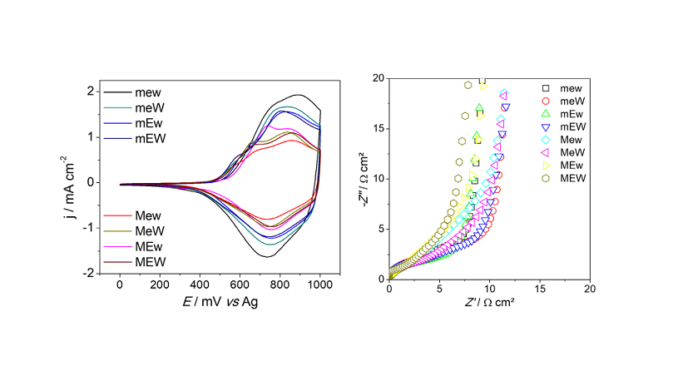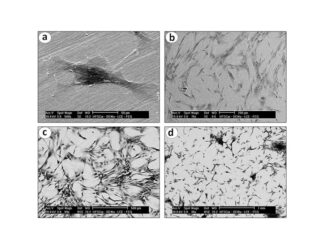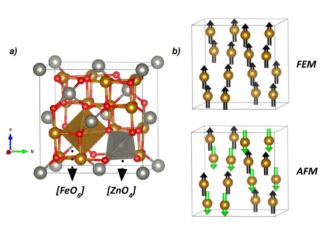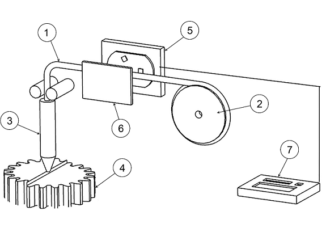
Chemometric Evaluation of Poly(3-hexylthiophene) Electrochemical Aging Path as a Function of Electrochemical Synthesis Variables
Abstract: Conductive polymers are versatile materials that can be applied in many different technology fields, especially green energy. They have several advantages, such as easy synthesis, low density, and cost. However, its electric conduction property is also related to material aging with great loss of their characteristics, limiting their applicability. The in-depth study of electrochemical aging can provide useful information for new strategies to overcome this problem. Thus, this work describes the use of factorial design to evaluate the influence of some synthesis variables on the aging of poly(3-hexylthiophene): electrolyte and monomer concentration and water in the synthesis of non-aqueous solution. For this, the properties of the films were evaluated by cyclic voltammetry, electrochemical impedance spectroscopy, and scanning electron microscopy. The accelerated electrochemical aging was performed by applying a potential higher than the superoxidation potential for 20 min steps. It was possible to identify two extreme cases, the conventionally synthesized polymer aged more, while the polymer obtained with the three altered parameters suffered fewer aging effects. It was possible to identify a range of different aging pathways among these. The mechanical stress caused by the several oxidation/reduction cycles of the material aligned to the increasing loss of polymer properties, potentiates aging.
Author(s): Goncalves, R.; Pereira, E. C.
Journal of the Brazilian Chemical Society
Published: 2022
DOI: https://doi.org/10.21577/0103-5053.20220039
CDMF
The CDMF, hosted at the Federal University of São Carlos (UFSCar), is one of the Research, Innovation and Dissemination Centers (RIDC) supported by the São Paulo State Research Support Foundation (Fapesp), and also receives investment from the National Council Scientific and Technological Development (CNPq), from the National Institute of Science and Technology of Materials in Nanotechnology (INCTMN).




